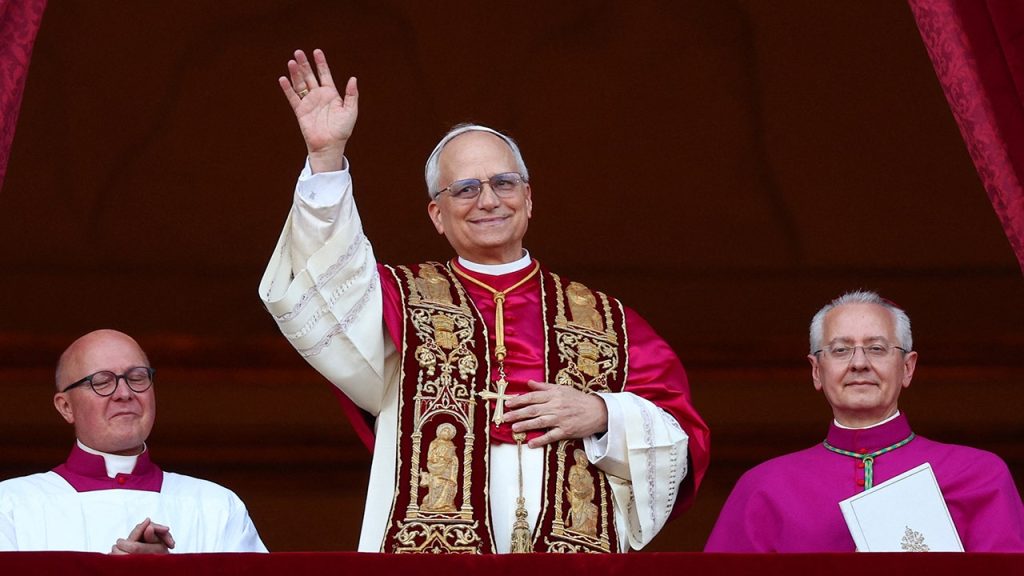In a historic event, Cardinal Robert Prevost has been elected as the new Pope, taking the name Leo XIV. The election occurred on May 8, 2025, just two days into the papal conclave, following the passing of former Pope Francis. Born in Chicago, Illinois, in 1955, Pope Leo XIV became the first American to ascend to the papacy, a move that is seen as pivotal in the future direction of the Catholic Church, particularly concerning its global outreach and social teachings.
| Article Subheadings |
|---|
| 1) Pope Leo XIV: Background and Early Life |
| 2) His Rise Within the Church |
| 3) Key Influences and Philosophies |
| 4) Challenges Ahead for the New Pope |
| 5) The Global Reaction to His Election |
Pope Leo XIV: Background and Early Life
Pope Leo XIV, formerly known as Cardinal Robert Prevost, was born on September 14, 1955, in Chicago, Illinois. His early life in a city emblematic of the American melting pot played a critical role in shaping his views towards inclusivity and diversity within the Church. Growing up in an environment rich in cultural exchanges helped forge his commitment to social justice, which has been a hallmark of his clerical career.
His transformative journey began in 1977 when he entered the novitiate of the Order of Saint Augustine, situated in Saint Louis. This marked the beginning of his spiritual and theological education, leading him to take his solemn vows in August 1981. He was subsequently ordained as a priest a year later, dedicating himself to the ministries that would take him to diverse communities, especially within Peru.
His Rise Within the Church
His elevation within the Church’s hierarchy showcased his dedication and competence. In January 2023, Pope Francis appointed him as the prefect of the Dicastery for Bishops, a highly influential position within the Vatican responsible for vetting global bishop nominations. This appointment symbolized his growing importance in the Catholic Church and his alignment with Pope Francis’s vision.
Later in September 2023, he was elevated to the cardinalate, solidifying his position as a leading figure within the Church. His previous administrative roles in Peru further prepared him for the responsibilities that come with being Pope, as he gathered extensive experience in church governance and pastoral care.
Key Influences and Philosophies
Pope Leo XIV is known for closely aligning with the teachings of his predecessor, Pope Francis, especially regarding core issues such as environmental stewardship, social outreach, and welcoming marginalized communities into the Church. His commitment to the Church’s social teachings resonates profoundly with modern challenges, including inequality and climate change.
His active participation in the Peruvian Bishops’ Conference from 2018 to 2023 exemplified his focus on social justice, allowing him to address critical regional issues directly. His tenure in leadership roles in the Augustinian community fostered cooperative leadership and inclusivity, echoing his own vision for a Church that reaches beyond traditional boundaries.
Challenges Ahead for the New Pope
As Pope Leo XIV steps into his new role, he faces significant challenges that include addressing internal Church divisions and responding to broader geopolitical tensions that impact religious communities worldwide. The concern over his American origins has also been raised, with some observers questioning whether this might influence the Vatican’s diplomatic relationships.
Furthermore, the new Pope must navigate the complexities of managing a Church still grappling with the repercussions of past scandals, notably those involving sexual abuse. Establishing trust and ensuring transparency will be paramount in restoring faith among congregants.
The Global Reaction to His Election
The election of Pope Leo XIV has drawn mixed reactions across the globe. Many view this moment as historic, celebrating the ascension of the first American Pope as a potential turning point for the Catholic Church’s approach to social issues and international relations. This landmark event has indeed triggered discussions about the future direction of Catholicism.
Responses have varied, with some praising his emphasis on social justice, while others are concerned about the implications of an American leader steering the Vatican’s global stance. Multitudes of followers within the Church hope his leadership will usher in renewed hope and revitalization among its ranks.
| No. | Key Points |
|---|---|
| 1 | Pope Leo XIV is the first American Pope elected in history. |
| 2 | He was elected on May 8, 2025, during the second day of the conclave. |
| 3 | Pope Leo XIV is closely aligned with the teachings of Pope Francis, particularly regarding social issues. |
| 4 | He faces challenges related to Church divisions and past scandals. |
| 5 | The global reaction is varied, with both optimism and concern regarding his American leadership. |
Summary
The election of Pope Leo XIV marks a watershed moment in the Catholic Church’s history. His extensive background, aligned philosophies with his predecessor, and the challenges he faces as the first American Pope position him to potentially reshape the direction of global Catholicism. As he begins his papacy, much will depend on his ability to foster unity within the Church and move decisively on pressing social issues that resonate with today’s world.
Frequently Asked Questions
Question: Who is Pope Leo XIV?
Pope Leo XIV, formerly Cardinal Robert Prevost, is the newly elected Pope, making history as the first American to hold the papal office.
Question: What were some of the key beliefs held by Pope Leo XIV?
Pope Leo XIV is known for his commitment to social justice, environmental issues, and inclusivity, closely aligning with the teachings of his predecessor, Pope Francis.
Question: What challenges does Pope Leo XIV face as he begins his papacy?
He faces challenges related to Church divisions, historical scandals, and the expectations of navigating a broader geopolitical landscape, particularly given his American background.


